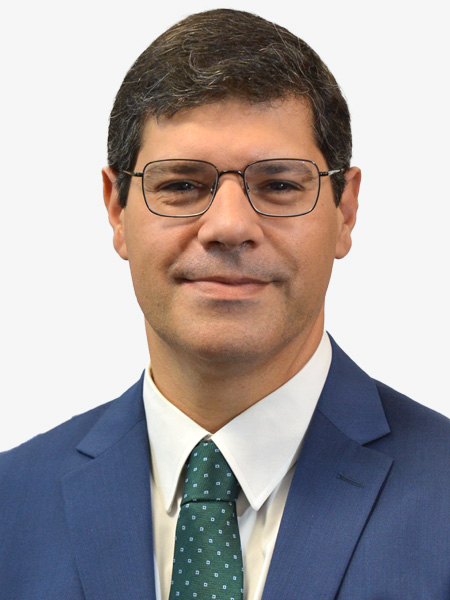About the author: Eurico Brilhante Dias is the Secretary of State for Internationalisation of the Portuguese Ministry of Foreign Affairs. His full biography can be found here.
Webinar on Corporate Due Diligence and Civil Liability organised by the Nova Centre on Business, Human Rights and the Environment with the support of the Portuguese Presidency of the Council of the European Union in partnership with the British Institute of International and Comparative Law, the Portuguese Ombudsman (Provedor de Justiça), the Teaching Business and Human Rights Forum, and NOVA 4 The Globe on the 28th of January 2021
Professor Mariana França Gouveia,
Professor John Ruggie,
Distinguished Panellists,
Dear participants,
Please allow me to thank you for this opportunity to present some opening remarks on this Webinar Series organized by the Nova Centre on Business, Human Rights and the Environment, in partnership with the Portuguese Ombudsman, the British Institute of International and Comparative Law, the Teaching Business and Human Rights Forum and Nova 4 The Globe.
In the forthcoming months, participants will have the opportunity to engage with experts and exchange views on key issues pertaining to Business, Human Rights and the Environment, and the role of due diligence procedures in the upholding and promotion of adequate standards in these areas.
I would not dwell on the issue of measuring to what extent failure to exercise due diligence leads to liability or to what extent should States provide for a legally binding framework. I am confident this is a topic that will lead to a very substantial debate during this Webinar Series.
Suffice to say that companies play a central role in assessing the potential human rights’ impacts of their actions and in conforming their action with these findings, by taking appropriate action to prevent potential adverse human rights impacts or end actual ones.
Companies’ due diligence complements States’ action as they are usually in the best position to identify, mitigate and account for human rights abuses and environmental damage throughout their global value chains.
As member of the Government responsible for trade promotion and investment, I see this as a growing concern of both Portuguese exporting companies and international companies investing in our country. Corporate social responsibility is nowadays perceived as a positive differentiating factor in international markets.
But the role of the States and International Organizations such as the UN, OECD or ILO on a more regulatory level cannot be overlooked. It is important to develop common global standards in this area; to provide for coherent approaches; to avoid free-riding or economic competition based on lower human rights standards and thus to levelling the playing field. Ultimately, to ensure adequate human rights’, cultural and environmental protection norms enforceability.
The United Nations Guiding Principles on Business and Human Rights are the main reference for our efforts, and I cannot thank enough Professor Ruggie for leading this discussion back in 2011, which culminated in the unanimous adoption of the Guidelines in the Council for Human Rights.
The trio of Presidencies comprising Germany, Portugal and Slovenia is committed to drive forward efforts to achieve an EU-wide coherent implementation of the UNGPs. We have called for the development of a new communication on “Corporate Social Responsibility” which should include an EU action plan on responsible business conduct.
At the same time, we’ll seek to actively promote and support, in line with the EU Action Plan for Human Rights and Democracy and the Council Conclusions on Human Rights and decent work on global supply chains, the global efforts to implement the UNGPs. At the national level, work on an Action Plan on the implementation is also underway and should be finalized soon.
This is, indeed, a timely subject. The reinforcement of the protection of Human Rights, including within and by the business sector, remains of the utmost importance to the fulfilment of the goals that the Portuguese Presidency has set out for these six months.
The response to the global pandemic crisis provides us with both a challenge and an opportunity like none before. Now it is time to focus on climate action leadership. To focus on the promotion and the strengthening of the European social model. To promote a rules-based approach to international trade based on fair and sustainable business practices. To generate inclusive economic growth and create opportunities for all. This is why this debate is so important.
I seize this opportunity to thank, once again, the organizers for this timely initiative which will surely provide us with interesting insights on a very important topic for our future.
Suggested citation: E. Brilhante Dias, ‘Transcript of the opening speech delivered at the webinar on Corporate Due Diligence and Civil Liability’, Nova Centre on Business, Human Rights and the Environment Blog, 21st February 2021.
Latest Posts
Categories
- Annual Conference on Business; Human Rights and Sustainability
- Blogging on B&HR: Towards an EU CSDDD
- Business and Human Rights Developments at the European Level
- Business and Human Rights Developments in Central and Eastern Europe
- Business and Human Rights Developments in Southern Europe
- Business and Human Rights in Conflict
- Business and Human Rights in the World
- Corporate Sustainability Due Diligence Directive
- Exploring new frontiers in the updated OECD Guidelines
- Latest Business and Human Rights Developments
- National Contact Points for Responsible Business Conduct: the road ahead for achieving effective remedies
- Notícias sobre Empresas e Direitos Humanos
- Second Annual Conference on Business; Human Rights and Sustainability
- Serie de blogs “Explorando los caminos hacia el acceso efectivo a la justicia en materia de empresas y derechos humanos”
- Short-Termism in Business Law: A Global Approach
- Sustainability Talks
- Young Voices and Fresh Perspectives

